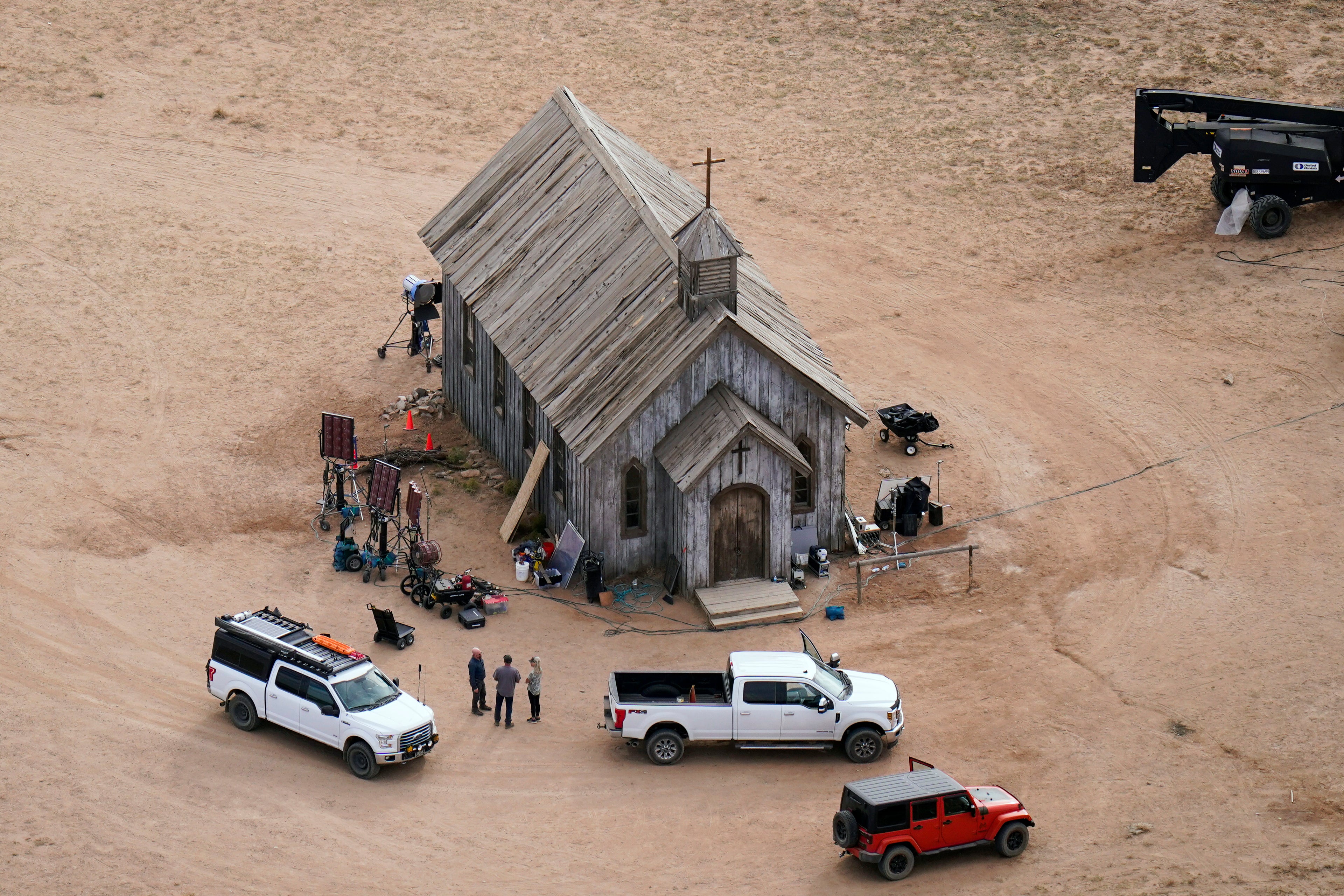What to know about Rust shooting case as attention turns to Alec Baldwin’s trial
Now that jurors in New Mexico have convicted a movie weapons supervisor of involuntary manslaughter in the fatal shooting of a cinematographer by Alec Baldwin on the set of the Western film “Rust,” attention will turn to the actor’s own trial

Now that jurors in New Mexico have convicted a movie weapons supervisor of involuntary manslaughter in the fatal shooting of a cinematographer by Alec Baldwin on the set of the Western film “Rust," attention will turn to the actor's own trial.
Baldwin, the lead actor and co-producer of the film, was pointing a gun at Halyna Hutchins during a rehearsal on a movie set outside Santa Fe in October 2021 when the gun went off, killing her and wounding director Joel Souza. Baldwin has said he pulled back the hammer — but not the trigger — and the gun fired.
Baldwin has pleaded not guilty to an involuntary manslaughter charge ahead of his July trial date.
The film's weapon's supervisor, Hannah Gutierrez-Reed, faces up to 18 months in prison and a $5,000 fine after her conviction Wednesday on the same charge. A sentencing date has not been set. She was acquitted of an evidence tampering charge.
Here are some things to know as the case against Baldwin nears:
Who was Halyna Hutchins?
Hutchins, who was 42 when she died, grew up on a remote Soviet military base and worked on documentary films in Eastern Europe before studying film in Los Angeles and embarking on a promising movie-making career.
She described herself in social media posts as a “restless dreamer” and “adrenaline junkie.” Before “Rust," her credits included the crime drama “Blindfire," the horror film “Darlin” and the 2020 thriller “Archenemy.”
Friends and family said she was well-liked and had a magnetizing personality.
Hutchins parents and sister responded to Gutierrez-Reed's conviction by saying they've always wanted accountability for her death.
“We look forward to the justice system continuing to make sure that everyone else who is responsible for Halyna's death is required to face the legal consequences of their actions,” according to a statement from their attorney, Gloria Allred.
The filming of “Rust” moved to Montana after Hutchins' death under an agreement with her husband, Matthew Hutchins, that made him an executive producer.
Baldwin indicted
Prosecutors dismissed an earlier involuntary manslaughter charge against Baldwin after being told the gun he was holding might have been modified before the shooting and malfunctioned.
A new analysis of the gun opened the way for prosecutors to reboot the case.
A grand jury indicted Baldwin on the same charge in January. The indictment alleges Baldwin caused Hutchins' death — either by negligence or “total disregard or indifference” for safety.
If he’s convicted, the charge carries a potential prison sentence of up to 18 months.
Pathways for prosecution
The indictment offers prosecutors two alternative standards for the charge against Baldwin. One would be based on the negligent use of a firearm.
The more recent gun analysis, conducted by Forensic Science Services in Arizona, calls into question Baldwin's version of events. It concluded “the trigger had to be pulled or depressed sufficiently to release the fully cocked or retracted hammer of the evidence revolver.”
An FBI expert testified at Gutierrez-Reed's trial that the revolver used by Baldwin was fully functional with safety features when it arrived at an FBI laboratory. The expert said he had to strike the fully cocked gun with a mallet and break it in order for it to fire without depressing the trigger.
A second alternative for prosecutors is to prove beyond a reasonable doubt that Baldwin caused Hutchins' death without due caution or “circumspection,” also defined as “an act committed with total disregard or indifference for the safety of others.”
Baldwin’s defense
Baldwin's attorneys say Hutchins' death was a terrible tragedy, and prosecutors are misguided in their attempts to secure a conviction against him.
Gutierrez-Reed's attorney, Jason Bowles told jurors in her trial that Gutierrez-Reed was being used as a convenient scapegoat for “Rust” producers, including Baldwin. Bowles suggested Baldwin went off-script when he pointed the weapon at Hutchins.
Investigators found no video recordings of the shooting.
Messages seeking comment from Baldwin's spokesperson and a lawyer were not immediately returned Wednesday.
Bookmark popover
Removed from bookmarks